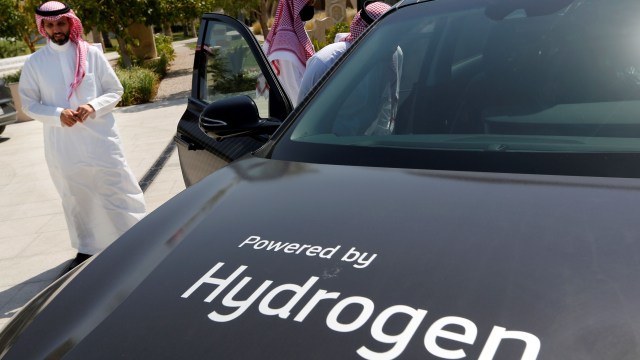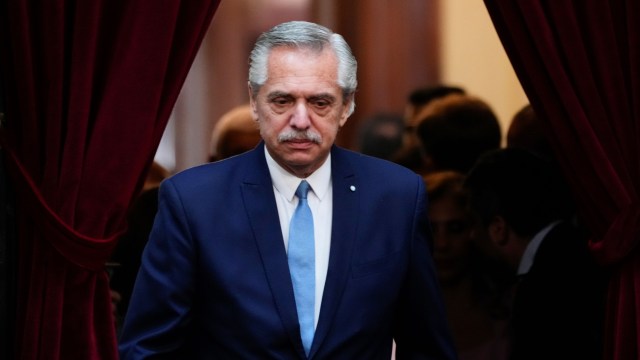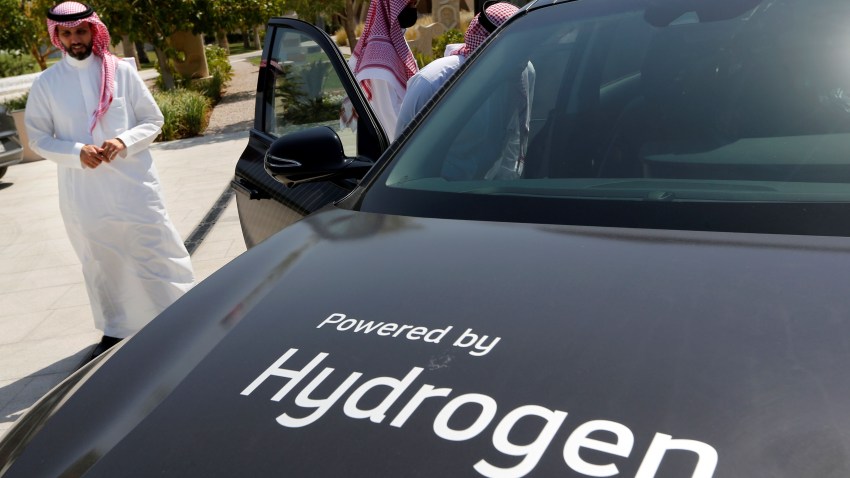Today at WPR, we’re covering how Gulf states are embracing green energy, and the political implications of a record-setting dengue fever outbreak in Peru.
First, though, here’s our take on today’s top stories:
Russia mutiny: Uncertainty is still swirling after Wagner Group leader Yevgeny Prigozhin seemingly led a mutiny against Russia’s military leaders, and potentially against President Vladimir Putin himself, over the weekend. The mercenary group seized a military headquarters in a southern Russian city before traveling hundreds of miles toward Moscow, before abruptly turning around after the Kremlin made a deal in which Prigozhin will move to Belarus in exchange for amnesty for himself and his soldiers. (New York Times)
Our Take: Many Western observers have come to the conclusion that Putin has been irrevocably weakened by Prigozhin’s mutiny. However, considering how little we actually know about what happened to resolve the crisis, those conclusions are likely premature, spurred on by three factors:
- Misreadings of Prigozhin’s actions as an attempted coup, when it is increasingly looking like a negotiating tactic that backfired.
- Western assumptions about how the Putin regime functions.
- Allowing desired outcomes to cloud judgements.
Of course, none of this is to say that those conclusions will not be borne out by future events. But for now, it is too early to say for sure that Putin has been weakened at all, let alone enough to threaten his regime’s survival.
*****
You can read the rest of today’s News Wire, a curated selection of one must-read article from every region, here.

The member states of the Gulf Cooperation Council have in recent years been making increased efforts to produce renewable energies, in part to support their own green transitions in addressing climate change, but also to prepare for reduced demand for fossil fuels in a decarbonized global economy. A key partner in advancing these goals? China.
Jonathan Fenton-Harvey writes about what that means for the region’s energy mix moving forward.

The Gulf States Are Pinning Their Renewable Energy Hopes on China
GCC member states in the Middle East are turning to China as a partner in their effort to shift to renewable energy. Read more.
Peru is currently grappling with its worst-ever outbreak of dengue fever, a mosquito-borne viral infection that causes severe flu-like symptoms and can be fatal if not treated promptly.
Columnist James Bosworth writes that the public health crisis has political roots and implications, and that the success or failure of the government’s response could determine the fate of President Dina Boluarte.
Peru’s Political Crisis Is Hobbling Its Dengue Outbreak Response
Peru’s worst-ever dengue fever outbreak has political roots and implications that could determine the fate of President Dina Boluarte. Read more.

Question of the Day: Which country was not among those visited by Iranian President Ebrahim Raisi on a recent trip to Latin America?
Find the answer in the latest WPR Weekly Quiz, then read Frida Ghitis’ column on the visit and what it means for the region.

Elections in Greece, Sierra Leone and Guatemala took place over the weekend.
Greece: Voters overwhelmingly reelected the conservative party New Democracy, giving current PM Kyriakos Mitsotakis an outright majority in parliament.
Sierra Leone: Provisional results in the country’s presidential election are expected today, although if none of the 13 candidates secures 55 percent of the votes cast, the election will go to a runoff, which many fear could lead to unrest in a highly polarized environment.
Guatemala: The presidential election, marred by the removal of several candidates, is set to go to an August runoff, likely between former first lady Sandra Torres and Bernardo Arevalo, another center-left candidate.
*****
Meanwhile, in Argentina, the ruling Peronist coalition has announced it will unite around the country’s current economy minister, Sergio Massa, as its sole candidate in October’s presidential election.
Current President Alberto Fernandez announced in April he would not seek reelection, leaving a vacuum at the top of the deeply divided coalition. Massa was the most obvious alternative to Fernandez, but comes with concerns of his own.

Alberto’s Exit Leaves Argentina’s Presidential Election Wide Open
April 28, 2023 | Argentine President Alberto Fernandez announced he would not run in October’s election, amid a deepening economic crisis. Read more.
That’s all for today’s Daily Review. Coming up, we’ve got stories on Indonesian President Joko Widodo’s legacy and Netflix’s “The Diplomat.”
Have a great day,
Jakob Cansler
More from WPR
- Paul Poast on the power of Big Tech in international politics.
- Yasir Zaidan on the conflict in Sudan.
- Frida Ghitis on how autocracies are courting Venezuela.
- Joshua Kurlantzick on Myanmar’s civil war.

